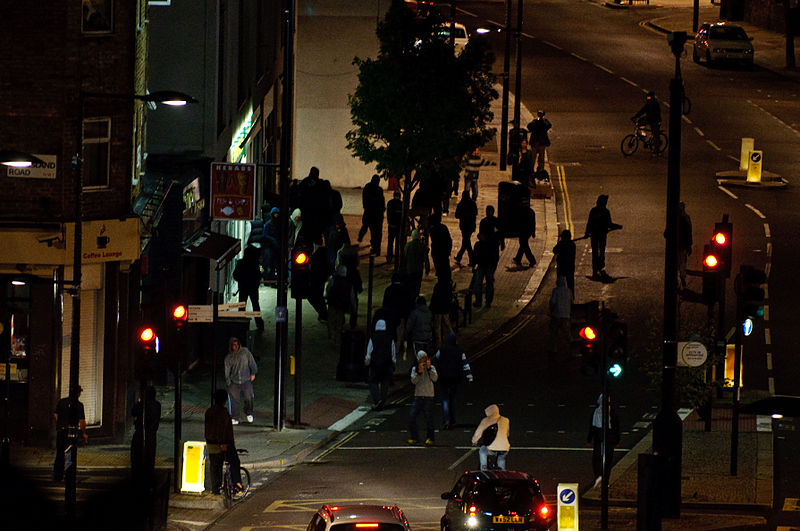31 May
2012
Should we Acquiesce in the Notion of an Under-Class?
Posted in Culture, Education, Social Commentary
There was a famous sketch performed long ago in an episode of the Frost Report where three men standing alongside one other represented the three then generally accepted socio-economic classes within society. Each was a caricature based upon traits commonly taken to have been present in individuals of that particular class. It is most likely that the basic structure would have been similar, if not identical, to those of previous generations. The passage of time would naturally result today in updated mannerisms and modes of dress, but, more than that, there would perhaps have to added a fourth individual representing a now accepted extra grouping.
The media often describe it as the ‘under-class’, an unfortunate and demeaning term. It refers to people in our society who tend not to work, vote or engage with other groupings in any meaningful way. Their lack of economic resources results in their having little or no effect upon the economy. It might perhaps be better, if we sought to recognise a shared human worth, to replace the term ‘under-class’ with ‘disengaged class’.
It takes only a brief survey of history to discover a natural propensity in man for order and definition. All societies, for better or worse, have developed varieties of class systems, related to the working machinery of communities. Even when attempts have been made to shape society along Communist lines, a system of socially recognised hierarchy has always resulted. Where such a system becomes entrenched and rigid, a backlash often occurs, since humankind seeks natural justice as well as structure. Society requires order for effectiveness, but also the involvement of all. The seemingly recognised development of a disengaged class must, at least in the medium- to long-term, be damaging to the stability and fabric of society.
It would be simplistic to attribute disengagement to a single cause. Complexity, however, cannot provide an excuse not to tackle the issues involved. The ‘engaged’ have a stake in the wellbeing of society, and also some belief in their own capacity to contribute to its improvement. They have also some sense of responsibility, for they know that, were they not to engage appropriately with local community and national government, their own well-being might be affected negatively.
One field in which government can do something to tackle disengagement is that of the educational system. If schools encouraged a sense of community and of responsibility towards the little ‘societies’ they themselves represent, it would surely help their former pupils to live by such notions in their after-lives. The ‘disengaged’ often live in environments with little structure. Much educational debate focuses upon the academic performances of schools and particular groups. Academic performance is, in fact, much enhanced where schools provide structured environments. It is encouraging that the present government is placing greater emphasis upon such structures. If the problem of a ‘disengaged’ class is to be tackled, it is vital that this policy be pursued with determination.

Leave a Reply